14 Oct What Factors Affect Business Risk?
All business owners must embrace the fact that risks are part and parcel of running a business. Every business owner is bound to encounter business risk factors or uncertainties that will end up affecting cash flows, growth, and profitability. While internal weaknesses might give rise to risks, some might come from external factors. Other than this, when a business expands and grows, it is natural for risks to arise. Yes, even positive sources can bring in risks!
Factors affecting business risks share a similar ground, even though risks continue to change with time and vary from business to business. Hence, to successfully eradicate and manage risks, it is crucial to understand these factors.
In this article, we are going to discuss a few of the many factors that have the potential to affect business risk.
So, let’s get started!
Product diversification
This is one factor that can have a profound impact when it comes to business risk. If a business is entirely dependent on just one product or service, the risk multiplies. This is in contrast to a firm offering more than one product or service. This is because their performance isn’t dependent on only one product or service, and they don’t have enough room to navigate through and reduce risk levels.
Demand for a product and economic conditions
If the demand for a product or service is highly sensitive or heavily influenced by economic conditions, the business risk is greater. Speaking of this, a business selling essential or staple goods might face a relatively low business risk. This is because the demand for their goods will remain stable, regardless of economic conditions. When a product is sensitive, its demand is susceptible to risks.
The size of business and intensity of competition
If you are a start-up or a smaller business, the risk is greater, considering that it can be quite challenging for a business of such a size to both survive and thrive. This is because it will need its fair share of time and space to be able to compete against established businesses. Let’s not forget that all startups need time to adapt to competitive industries and fields.
Speaking of which, the business risk is greater if the level of competition is too high. A small business will naturally take its time to carve its foot in the market and stand parallel to market leaders. However, this can vary from industry to industry. If your startup has its own niche that no other business addresses, you have a fair chance of coming out on top.
A higher fixed cost business structure
In case a business has high fixed costs, it automatically incurs greater levels of business risk. This is because it’s time-related and has nothing to do with the business’s product or service. Generally, a business with low fixed costs or a cost structure consisting of variable costs has nothing or less to worry about. Variable costs mean lower business risk as compared to a business incurring higher fixed costs.
To discuss your business risk factors talk to us today!
To find out more, contact one of our talented Risk Advisors today!


No Comments